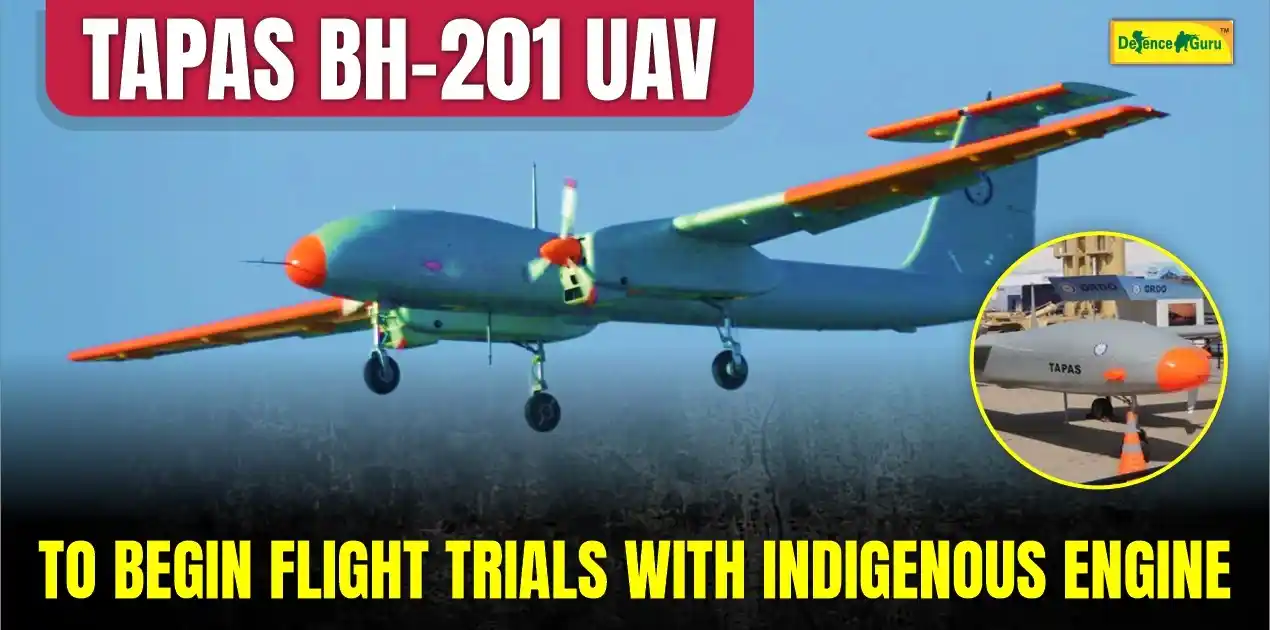TAPAS BH-201 UAV to Commence Trials with Indigenous Engine
India's journey towards defence indigenization is about to see yet another milestone as DRDO's Aeronautical Development Establishment (ADE)-developed TAPAS BH-201 Unmanned Aerial Vehicle (UAV) is all set to conduct flight trials using an indigenous engine.
Made-in-India Propulsion
The indigenous powerplant, a 2.2L four-cylinder inline turbocharged CRDi engine, has been designed by the Vehicle Research and Development Establishment (VRDE) in collaboration with JAYEM Automotives. Producing 180 horsepower at 11,000 feet and capable of flying as high as 32,000 feet, the system is backed by a Full Authority Digital Engine Control (FADEC) unit for ensuring redundancy and automation. Replacing imported engines, the homegrown system brings TAPAS's indigenous content to nearly 80%—a step likely to address previous propulsion-related setbacks and bring the platform in line with Joint Services Qualitative Requirements (JSQRs) to a greater extent.
UAV Performance Till Now
TAPAS, the MALE UAV, has already achieved the following milestones:
- Maximum altitude: 28,000 feet
- Endurance: 18 hours
More than 200 test flights, including joint successful trials with the Indian Navy
Although it has not yet achieved JSQR targets of 30,000 feet altitude and 24 hours of endurance, ongoing upgrades are being implemented to fill the gap.
Next Stage of Testing
The next trials to be conducted with the indigenous engine will include:
- Aerodynamic performance
- Flight control verification
- Reliability of the propulsion system
- Airframe structural integrity
These tests will be essential to obtaining airworthiness certification and propelling the UAV toward operational deployment.
Strategic Significance
The Indian Navy also has a keen interest in using TAPAS for naval reconnaissance, especially in areas such as the Andaman and Nicobar Islands, where shorter runways require multi-purpose UAV platforms. Defence officials stress that the experience of TAPAS will be channeled into the design and development of future Indian drones and will boost domestic manufacture as well as India's position in the global UAV market.
A Defining Step
The inclusion of a locally developed engine is more than a technological achievement—it is an expression of India's increasing proficiency in aerospace propulsion and its determination to reduce reliance on foreign systems. The upcoming trials will be a key test in the country's pursuit of self-reliance in unmanned aerial technology, leading the way for world-class combat-capable indigenous drones.
Read more:
India, US Fast-Track Tejas Engine Deliveries as Follow-On Orders Near Finalisation
Indian Navy to Commission Two Advanced Stealth Frigates Udaygiri and Himgiri

















